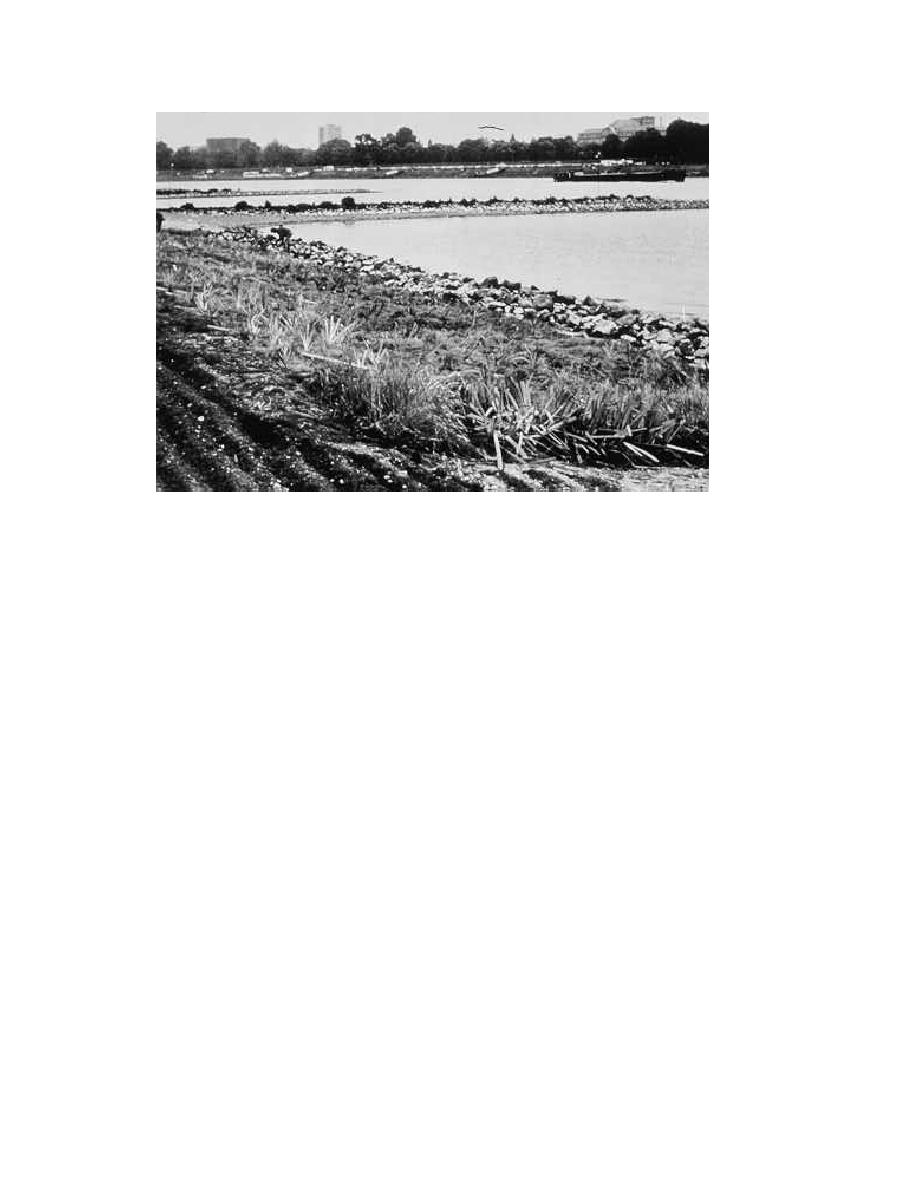
Appendix B: Bioengineering for Streambank Erosion Control -- Guidelines
Figure 12. System of bioengineering treatments such as geotextile
coir mats with planted vegetation on them placed above a rock roll
toe and between large rock transverse dikes.
Gabions are wire mesh baskets filled with rock and formed as boxes of various
dimensions. The wire is either galvanized or covered with a plastic coating to increase
durability. Gabions are tied together to become large, flexible, structural units and can be
stacked in tiers. They can be installed in the toe zone to prevent undercutting and can be
stacked or run as a revetment of gabion mattresses up into the splash and bank zones (Figure
13). They can be used in conjunction with vegetation in several ways. Often times, live,
willow whips are placed in between the tiers of boxes back into soil that facilitates sprouting.
When they are used as a gabion revetment and rock toe, vegetation can be placed in the
splash and bank zones above them. Gabions should be used with caution in streams that have
high bed load movement with cobbles and gravels that may break the wire mesh. Also, they
are susceptible to vandalism and to undercutting/overturning. If used in a stacked fashion,
a geotechnical engineer should be consulted to determine stability; otherwise, overturning
and sliding may be a problem.
Figure 14 is two schematics (two different versions) of a hard stabilizing structure for a
toe. This structure is called a LUNKERS, which is an acronym for "Little Underwater
Neighborhood Keepers Encompassing Rheotactic Salmonids." The LUNKERS is designed
to provide overhanging shade and protection for fish while serving to stabilize the toe of a
streambank. They were first used by the Wisconsin Department of Natural Resources and
described in detail by Vetrano (1988). They have since been adapted for use by the Illinois
State Water Survey. They are made from treated lumber, untreated oak, or materials made
B-28




 Previous Page
Previous Page
